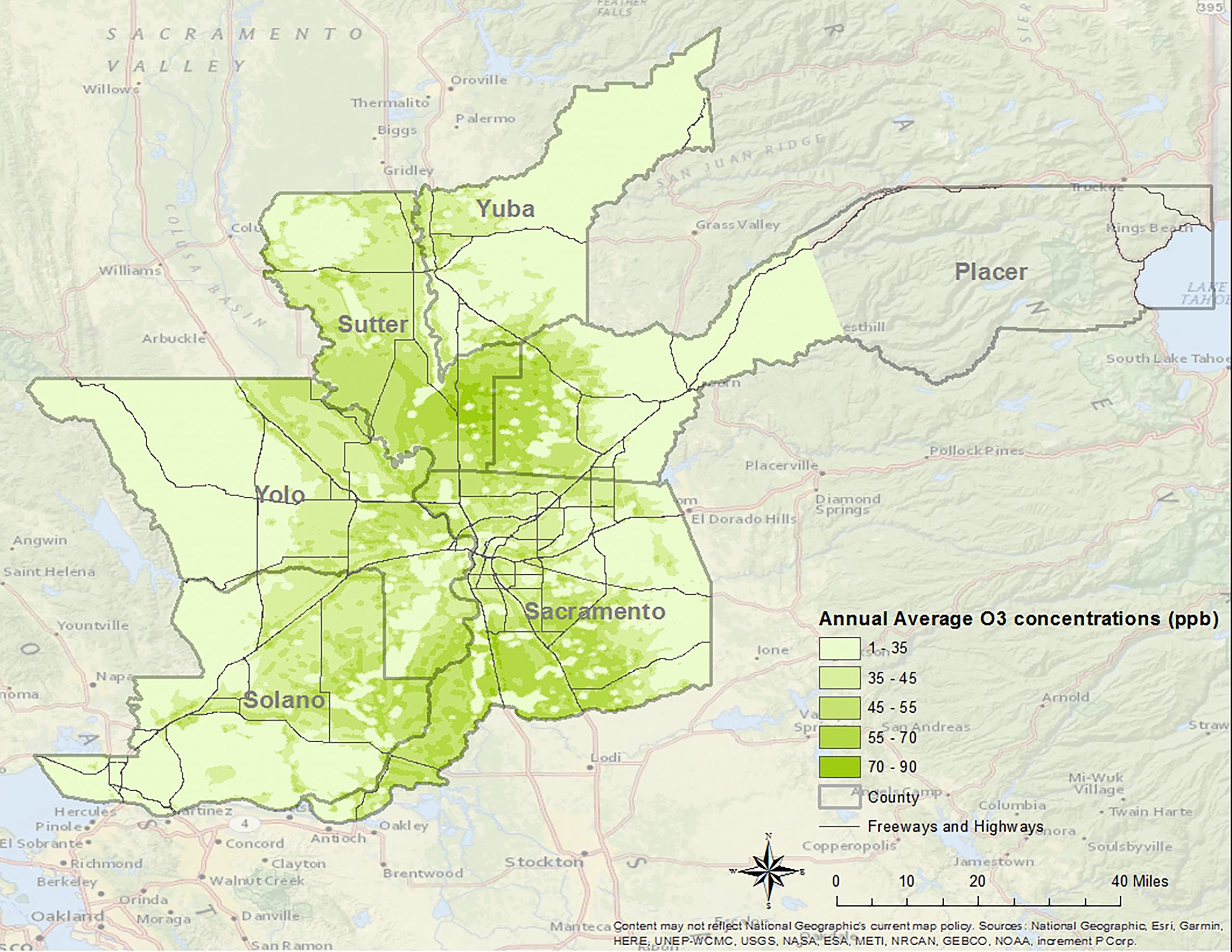Beate Ritz, PhD, and Michael Jerrett, PhD, in a statewide collaborative study, found that people who exercised in outdoor ozone pollution had a greater risk (up to 1.5x) of developing Type 2 Diabetes.
Older Californians who live in communities with poor air quality, even those who engage – as recommended – in physical activities but do so outdoors, have a higher risk of Type 2 diabetes, a complex and chronic metabolic disorder caused by insulin resistance and cell dysfunction.
Although development of diabetes has typically been related to obesity and physical inactivity, its causes are complex; recent research has suggested that environmental risk factors, including air pollution, also play a major role, said Dr. Beate Ritz, a UCLA Fielding School of Public Health professor of epidemiology and environmental health sciences who has studied the impact of ozone (O3), a common element of air pollution, on human health.
“The O3-related risk of developing diabetes was 1.5 times higher in the higher-outdoor activity group, and even in the lower activity group, there is an observably higher risk compared with those living in less polluted communities,” said Ritz, a co-author of the research, who also serves as a professor of neurology at UCLA’s David Geffen School of Medicine. “Physical activity is well known and widely recognized for its health benefits, but the beneficial effects that outdoor physical activities have on human health may have to be weighed against the detrimental impacts of air pollution in areas affected by high pollution levels.”
The study, published in the September edition of the peer-reviewed journal Environmental Health Perspectives, or EHP, is available on-line as “Ozone Exposure, Outdoor Physical Activity, and Incident Type2 Diabetes in the SALSA Cohort of Older Mexican Americans.” EHP is a monthly journal of environmental health research and news published with support from the National Institute of Environmental Health Sciences, itself part of the U.S. Department of Health and Human Services’ National Institutes of Health. Diabetes is a chronic health condition that can cause serious health problems, including heart disease, vision loss, and kidney disease.
The researchers, from four different University of California campuses (UCLA, Berkeley, Irvine, and San Francisco), focused on residents of a six county area surrounding Sacramento, all older Mexican-Americans (60 years and up) who enrolled in the Sacramento Area Latino Study on Aging, or SALSA. The counties include Placer, Sacramento, Solano, Sutter, Yolo, and Yuba, although the researchers (including Dr. Michael Jerrett, UCLA Fielding School of Public Health professor of environmental health sciences) say the increased vulnerabilities are not limited to the region, or those surveyed.
Fore more about the study, methods, data, and publication visit https://ph.ucla.edu/news/press-release/2021/sep/ucla-led-research-finds-ozone-exposure-contributes-development-type-2
Media inquiries, please contact Brad Smith at bssmith@support.ucla.edu

